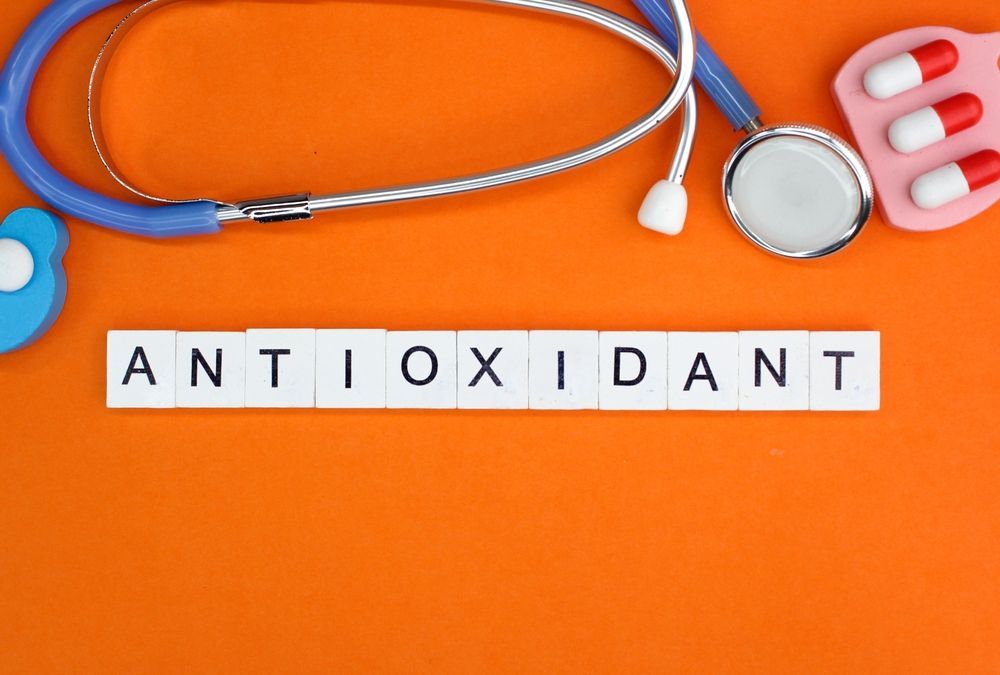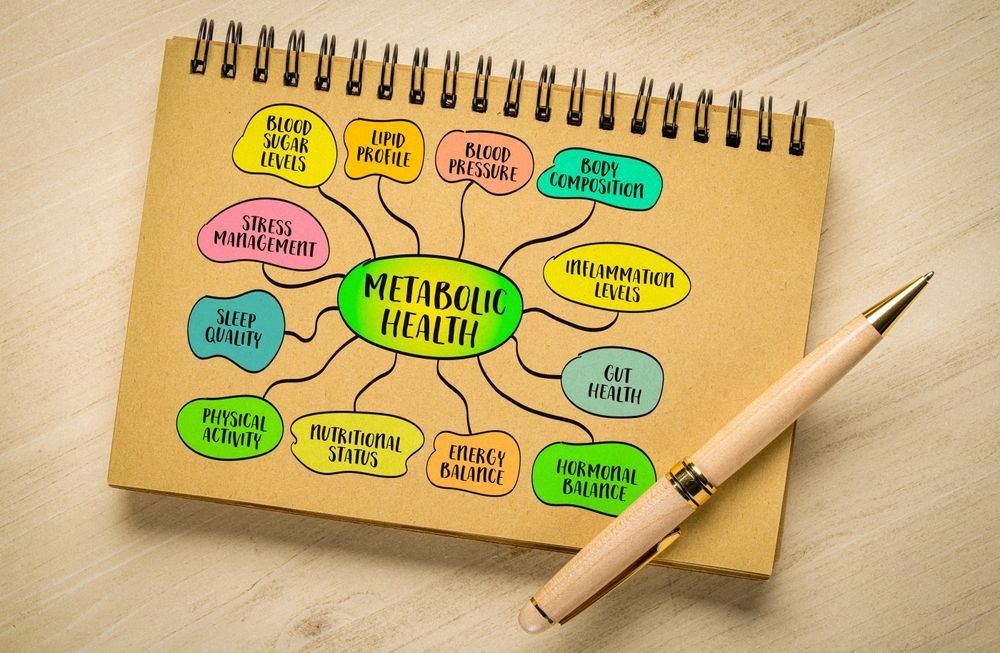The Power of Antioxidants in IV Therapy for Longevity

Antioxidants have gained significant attention in recent years for their potential health benefits, especially when combined with the innovative approach of IV therapy. This article delves into the power of antioxidants in the context of IV therapy, revealing their role in promoting longevity and overall well-being.
Understanding Antioxidants and Their Role in the Body
Defining Antioxidants
Antioxidants are compounds that help neutralize free radicals in the body. Free radicals are unstable molecules produced during metabolic processes, and their excess can lead to oxidative stress, a condition that contributes to cellular damage. Antioxidants, therefore, play a crucial role in protecting our cells by stabilizing these free radicals.
Common antioxidants include vitamins C and E, selenium, and flavonoids. These substances can be found in various foods and supplements, and they are vital for maintaining health and preventing disease. The body also produces some antioxidants endogenously, though their production varies with age, stress, and lifestyle factors. For instance, as we age, our body's ability to produce certain antioxidants diminishes, making dietary sources increasingly important for maintaining optimal health.
How Antioxidants Work
Antioxidants function primarily through a donation mechanism, where they donate an electron to free radicals, thus neutralizing them. By doing so, they help prevent the chain reaction of oxidative stress that could lead to cell damage.
Additionally, antioxidants can assist in the regeneration of other antioxidants within the body. For example, vitamin C is known to recharge vitamin E, enhancing its efficacy. This interconnectedness showcases the importance of a well-rounded intake of antioxidants in various capacities. Moreover, certain antioxidants, such as glutathione, play a pivotal role in detoxification processes, helping to eliminate harmful substances from the body and further contributing to overall health.
The Importance of Antioxidants for Health
The benefits of antioxidants extend beyond mere cell protection. Research indicates that a robust antioxidant intake may be associated with a reduced risk of chronic diseases, including heart disease, cancer, and neurodegenerative disorders. Furthermore, antioxidants may improve skin health, enhance immune function, and promote overall vitality.
Incorporating a variety of antioxidants into your diet can be an effective strategy for fighting oxidative stress and bolstering your body's defenses. This can be achieved through colorful fruits and vegetables, nuts, seeds, and select beverages like green tea. Beyond dietary sources, lifestyle choices such as regular physical activity and stress management can also influence the body’s antioxidant levels. Engaging in moderate exercise has been shown to enhance the body’s natural antioxidant defenses, while practices like meditation and yoga can reduce stress, further mitigating oxidative damage. This holistic approach to health underscores the importance of not only what we consume but also how we live our lives in maintaining our body’s resilience against oxidative stress.
The Science Behind IV Therapy
The Basics of IV Therapy
Intravenous (IV) therapy involves the administration of fluids, medications, or nutrients directly into the bloodstream. This method ensures rapid absorption and allows for higher concentrations of active compounds than are typically achievable through oral intake.
IV therapy has been used for decades in medical settings to deliver hydration and vital nutrients to patients. However, its application has expanded into wellness and longevity segments, where it is used as a means to enhance health and recovery.
The Effectiveness of IV Therapy
The effectiveness of IV therapy lies in its ability to bypass the digestive system, thereby providing immediate availability of nutrients. This can be particularly beneficial for individuals with gastrointestinal issues that hinder nutrient absorption.
Research supports the efficacy of IV therapy in various contexts, including recovery from illness, increased energy levels, and enhanced athletic performance. As the popularity of this approach continues to grow, more studies are evaluating its potential in preventative health practices.
The Safety and Risks of IV Therapy
While IV therapy is generally safe when performed by trained professionals, it is essential to consider potential risks. These may include infection at the injection site, allergic reactions, and imbalances in electrolytes or nutrients.
Before undergoing IV therapy, individuals should consult a healthcare provider to assess their specific needs and determine if this treatment is appropriate. A tailored approach can help mitigate risks and optimize outcomes.
The Intersection of Antioxidants and IV Therapy
The Benefits of Antioxidant IV Therapy
Combining IV therapy with antioxidants can offer unique benefits. Antioxidant IV therapy allows for the direct and efficient delivery of high doses of antioxidants into the bloodstream, enhancing their availability to target tissues.
This method can potentially amplify the protective effects of antioxidants, providing a rapid boost in energy levels, enhancing recovery from physical exertion, and supporting detoxification processes in the body.
The Process of Antioxidant IV Therapy
The procedure for antioxidant IV therapy typically involves a consultation to determine the appropriate formulation tailored to individual needs. A healthcare provider will prepare the IV solution, which may include a blend of vitamin C, glutathione, and other antioxidants.
Once prepared, the solution is administered through an IV line, usually over a period of 30 minutes to an hour. Patients may feel a sense of relaxation and rejuvenation during the infusion, with effects often lasting for days to weeks, depending on the individual.
Potential Side Effects and Considerations
While antioxidant IV therapy can be beneficial, it is crucial to monitor for potential side effects. Common reactions may include mild discomfort at the injection site, fatigue, or an upset stomach.
It’s essential to work with qualified practitioners who can provide appropriate management and adjust formulations as necessary to suit individual responses.
The Impact of Antioxidant IV Therapy on Longevity
The Connection Between Antioxidants and Aging
The aging process is closely linked to oxidative stress, as the accumulation of free radicals can lead to cellular and tissue damage. Studies suggest that maintaining adequate levels of antioxidants may slow the aging process and reduce the risk of age-related diseases.
This relationship underscores the value of integrating antioxidants into health regimens, particularly as one ages. Regular consumption of antioxidant-rich foods, along with adjunct therapies like IV treatments, may contribute to healthier aging.
How Antioxidant IV Therapy Promotes Longevity
Antioxidant IV therapy may promote longevity by providing substantial antioxidant support directly where it is needed most. By enhancing cellular function and minimizing oxidative damage, individuals may experience improved health outcomes as they age.
Moreover, boosting the body’s antioxidant levels can help lessen chronic inflammation, a significant contributor to many age-related conditions. Therefore, regular antioxidant IV treatments could become part of a comprehensive strategy for promoting longevity and vitality.
The Future of Antioxidant IV Therapy for Longevity
The future of antioxidant IV therapy appears promising, with ongoing research likely to expand our understanding of its potential. As more data becomes available, healthcare providers may develop optimized protocols tailored to different age groups and health goals.
Ultimately, combining evidence-based practices with integrative therapies like antioxidant IV can pave the way for innovative longevity strategies, promoting a longer and healthier life.










